Royal Society Report
The ‘After the reboot’ report finds challenges still exist in computing education.
Who Are The Royal Society?
The Royal Society is the UK’s national science academy, a fellowship of scientists, and the oldest scientific academy still in existence. Its mission is to promote excellence in science, support international collaboration, and demonstrate the importance of science to everyone. It does this through programmes, research, and policy work.
Since the 1660s, fellows of the Royal Society have been involved in some of the most important scientific discoveries made including Michael Faraday : Electricity and Magnetism. The Royal Society is an independent organisation, working independently of government, and structured as a charity.
Computing Education in UK Schools Report
Five years on from its influential ‘Shut down or restart?‘ report, the Royal Society has taken another look at the state of computing education in the UK. It has found that, while there has been some progress, computing education in the UK is ‘patchy and fragile’.
Although many educators have been working hard to provide the best opportunities for young people, they have not been getting the support they need, and a range of challenges have prevented computing opportunities becoming available and attractive for all young people.
Shut Down or Restart Royal Society Report
‘Shut down or restart?’ was the last comprehensive review of computing education in the UK carried out by the Royal Society. It was published in January 2012, and was an important influence on the changes to curricula across the UK that have happened since.It found that there was a lack of computing opportunities for young people across the UK, particularly in computer science. Read the Royal Society Shut Down or Restart Report.
In the last five years, much has changed for computing education in the UK. Programming and computer science are now being taught across the four UK nations and, in England, the ICT curriculum has been entirely replaced with computing.
Government policies may have changed, but what has really changed in schools and classrooms? In order to find out, the Royal Society reached out to over 900 schools across the UK, asking them about their levels of confidence, resources used, and how they have implemented the curriculum. They also met with teachers across the country to dig into the details of the survey findings. This was supported by literature reviews on the evidence of effective computing teaching and assessment, and a review of the datasets on examinations, the school workforce, and universities.
Things to Celebrate in UK Computer Science Opportunities
In the last few years, computing has become an entitlement for state schools across the nations in the UK. Each of the four nations is responsible for its own education systems and curricula, and they all now set out the opportunities for young people to learn computing. The subject is defined by the Royal Society as including the traditional IT skills, but also the areas of digital literacy and the more technical area of computer science.
This is a significant change from where we were in 2012, where the core ICT lessons available to most students had little in terms of understanding of how technology works and how to create with it. Educators across the UK have worked hard to make these significant changes in their teaching in a relatively short space of time, and celebration of that is due.
Extra-curricular opportunities for young people to get involved in computing are called out as being a particular success. 62% of primary schools and 72% of secondary schools provide these opportunities for their students.
The Duke of York award, Code Club, and CoderDojo are examples given of extra-curricular activities that are enriching the experience of computing across many schools.
Computing in the UK Problems
Despite this great work, the report describes some significant problems with computing in the UK, some of which will be recognised by teachers. Teacher supply and confidence, lack of training, the gender gap, and the lack of opportunities for young people to study for exams are all highlighted as holding back the subject.
There is more to be done on qualifications, and the lack of research and evidence around teaching this new subject to children and young people is also raised. To address these, the Royal Society provides twelve recommendations it thinks need to be put in place to support teachers.
Computing Teachers Supply and Confidence
Computing teachers will be glad, although probably not surprised, to see that this report strongly acknowledges the challenges that have come with the introduction of the new subject in schools. 44% of secondary teachers in the survey said they only felt comfortable with the earlier stages of the curriculum, with 32% of primary teachers reporting they felt similarly about their curriculum. The survey found there is huge diversity in the knowledge and experience of computing teachers.
Although some teachers are confident subject specialists, it also identifies those who are optimistic but still learning, and those who lack confidence and feel they need significantly more training. Some teachers also perceive that their students know more than they do about technology, although the authors of the report do counter that students often know how to use technology well, but much less about how it works.
The report estimates that less than 30% of secondary computing teachers have a degree in the subject, compared to 51% of physics teachers and 46% of maths teachers. However, 7% of primary teachers who responded had a background in computing, which suggests the survey attracted a higher proportion of those with such backgrounds than is representative of the teaching population as a whole.
The lack of confidence of existing teachers is a problem, but we also need to see more new people choosing to become computing teachers to replace those who retire or leave teaching. Finding people to take on these roles appears to be as much of a challenge, and the government in England only reached 68% of the recruitment target for 2012-2017.
Prospective computing teachers have skills that are sought after by industry, and it seems currently teaching is not appearing to be as attractive a proposition for them. The incentives that do exist can also have perverse consequences. Currently, newly qualified teachers who took a tax-free bursary to train can see their real earnings drop when starting a job, hardly an incentive to stay. Many drop out well before then, due to the pressures of the training course.
The report’s authors recommend that higher education providers do more to promote careers in education to those beyond the 6% of computing graduates that currently go into education. The idea of ‘braided careers’ is also recommended, to encourage people to mix an industry career with one in teaching.
Computer Science in the National Curriculum Timeline
- 2010: The ‘Curriculum for Excellence’ was introduced in Scotland, with computing science as an area of study
- Jan 2012: ‘Shut down or restart?’ published, calling for more computer science in the curriculum
- Jan 2012: Education Secretary Michael Gove disapplies ICT programme of study in the national curriculum
- Sept 2014: New subject of computing begins being taught in English schools
- Sept 2016: Digital Competence Framework launched in Welsh schools
- Sept 2016: GCE Digital Technologies qualification launched in Northern Ireland
- Nov 2016: Technologies Experiences and Outcomes for Scottish schools refreshed by Education Scotland
Lack of Computer Science Teacher Training
The answer to challenges of teacher confidence is professional development, but ‘After the reboot’ finds that, to date, this has not been available to enough teachers to make the difference that is needed. Many serving computer science teachers have the dual needs of developing their subject knowledge in computing as well as the pedagogical approaches to effectively teach it.
The report found that teacher network meetings and external courses are happening, but that there are gaps in sustained in-school development such as mentoring, action research, and self study. Then there is the issue of whether teachers are able to access these opportunities; the teacher survey found that 29% of primary and 26% of secondary teachers report experiencing no professional development activities in the 2015-16 academic year. However, good professional development is happening, it just needs to be scaled up.
In particular, the Computing At School Network of Excellence is a channel for professional development that is providing many opportunities, but needs to be funded to grow and reach the proportion of teachers who have not been able to engage in vital professional learning. As well as national funding, this will require school leaders to prioritise professional development in this subject as, at the moment, many teachers are undertaking their learning in their own time.
Widening Computer Science Access for Girls
Media coverage of computing education often includes the male-dominated nature of the subject in schools and careers. Only 20% of GCSE entries in 2017 were girls, and only 13% of undergraduates studying computer science are women. The report found that more girls think of computer science as difficult, not interesting, and not needed for their career plans. More girls choose to study computing at single-sex schools and, when they do, they often do as well or better than boys in their exams.
The authors suggest this shows that the environment can have a lot to do with the choices they make. Their literature review suggests that working on school culture and ensuring that computing is not presented in a gender-biased way could have an impact. However, the main recommendation is that more research is needed into how we can help more girls to see the opportunities computing could present them.
Gender isn’t the only area where equality of access to computing is a problem. Pupils who live in areas which mostly have smaller schools are less likely to have an exam course in computing provided for them. This creates a contrast between urban areas, where computing qualifications are often available, and rural areas where they often are not. More socially disadvantaged students are also less likely to study computing. There are also trends towards some ethnic groups being less likely to study computing, and teachers have concerns about provisions for students with special educational needs and disabilities. These trends all show that those studying computing do not currently represent the diversity of our society.
Computer Science Qualifications
The GCSEs in computer science in England, Scotland, and Northern Ireland are judged in the report to have been a success, with more students taking them and more students progressing to study A Level computer science. However, the Royal Society’s previous report recommended there should be a range of qualifications available to students between 14 and 16. With the phasing out of GCSE ICT, the study of aspects of computing, other than computer science, at this level are left to a range of qualifications that they are concerned lack credibility with teachers.
They provide a recommendation that Ofqual should work to ensure there are qualifications in IT for these age groups. ICT advocates have, for some time, been noting the strong focus on the computer science aspects of the curriculum, and the creation of additional opportunities in IT will be welcome news to them, and likely provide a chance for more young people to gain qualifications in digital technology.
More Research in Computing Education Needed
While the report shows there are practical gaps in computing education in England, there is also a big gap in our understanding of how people learn in the subject. Most research to date has involved undergraduates. Now that we are teaching similar concepts to children and young people, a lot more work is needed on how young students learn the practical skills and abstract concepts of computing.
Several areas are identified as needing more research. Better understanding of learning models and instructional techniques would allow teachers to design lessons that are most effective for students to learn the content and skills of the subject. The context of learning can vary hugely, and affects both how students learn and how they engage with computing. The authors identify physical computing as an area with promise here, but we don’t yet know enough about how it supports student learning.
The programming languages used have a similar effect on learning. Now educators are facing questions such as how to transition from visual to block based programming languages. Student engagement is also identified as an area we need to better understand, not least to make the subject appealing to more diverse groups of students. Finally, assessment techniques allow teachers to understand how students are learning and support them to get to the next steps.
The Royal Society recommends a strategic plan for computing education research in the UK, including a long-term agenda for research and a commitment to effective sharing of research with teachers.
Digital Jobs
The report found that employers are projecting a big growth in jobs depending on computing skills. Cybersecurity is one example, currently making up 15% of UK IT jobs and set to grow 10% each year until 2020. Machine learning is another emerging area which needs lots more well-prepared young people for the growing jobs. As well as specialist IT jobs, the report shows that computing skills will become ever more important in a range of other jobs, from project managers developing digital solutions, to scientists using simulations instead of traditional experiments.
The Future for UK Computing Education
The Royal Society’s ‘Shut down or restart?’ report in 2012 set a challenge for UK education of a scale that is still becoming clear. ‘After the reboot’ finds much to celebrate, but some huge challenges stand in the way of the vision of a new computing curriculum for all children in the UK. Perhaps the most immediate to teachers are the difficulties related to professional development. In its autumn budget, the UK government has just announced £100 million of new funding for training computing teachers.
This addresses one of the central challenges of the report, but there are still others relating to qualifications provision, diversity, research, and the recruitment of new teachers. The report paints a picture of a subject that needs urgent attention to build on an enthusiastic but ‘patchy’ start. Read the Royal Society Computing Education Report.
Originally published in Hello World Issue 4 : The Computing and Digital Making Magazine for Educators. Original article by Oliver Quinlan, the above article includes modifications from the original article. License CC BY-NC-SA 3.0


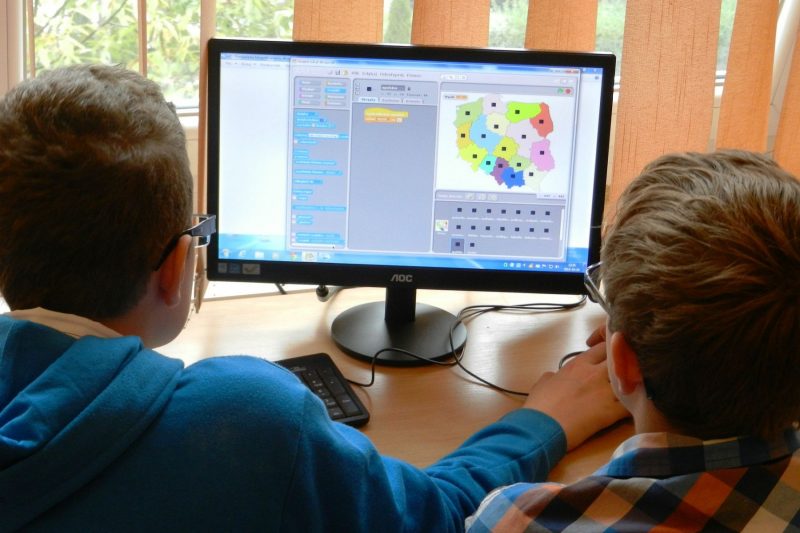
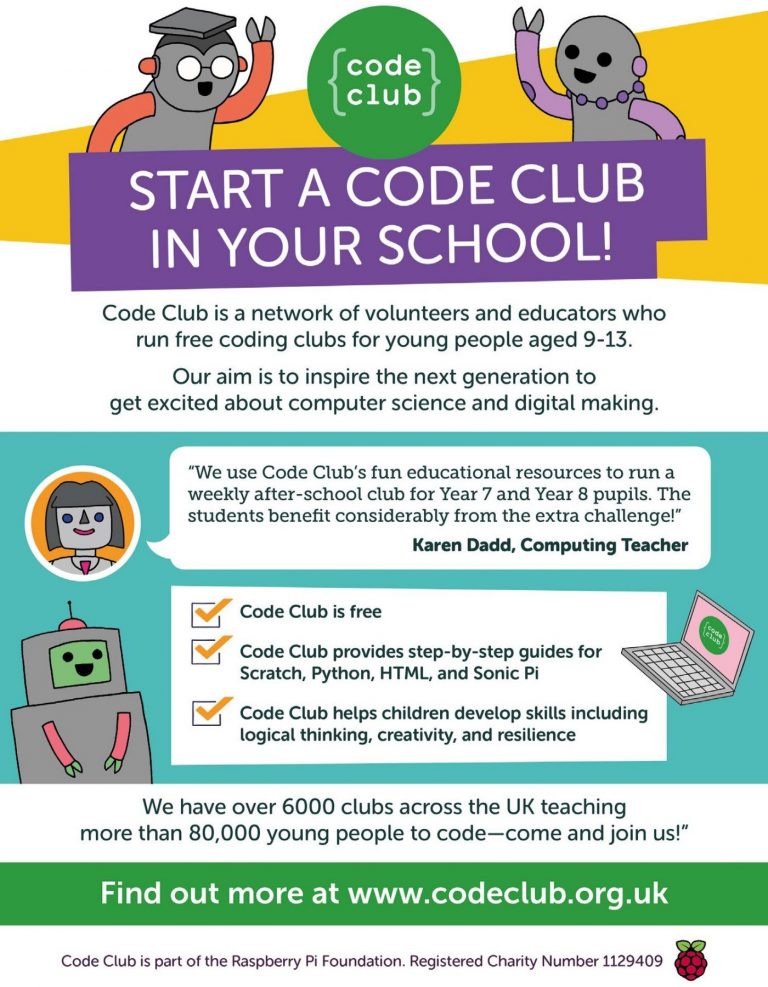
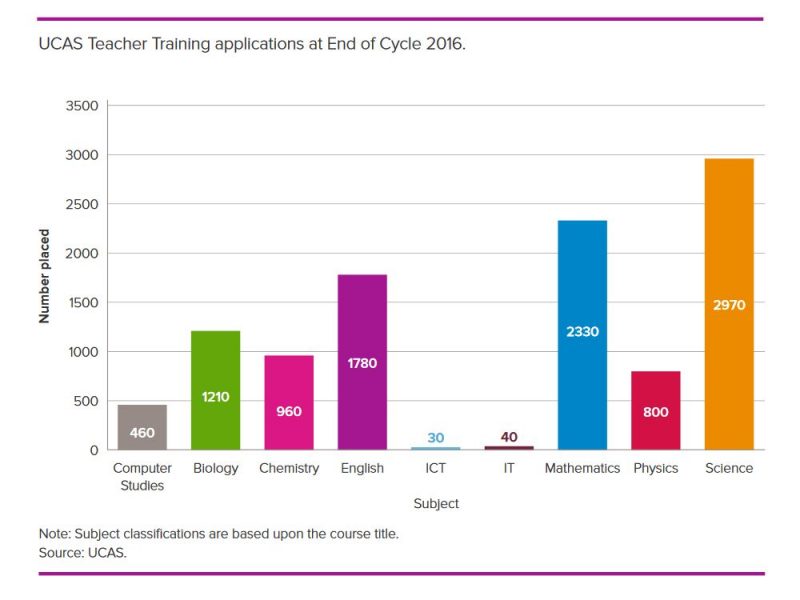
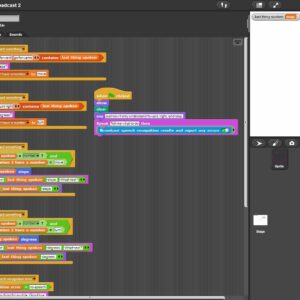

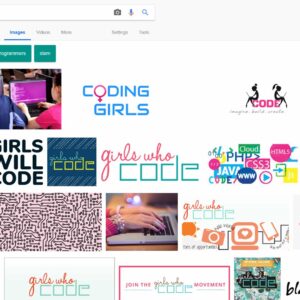
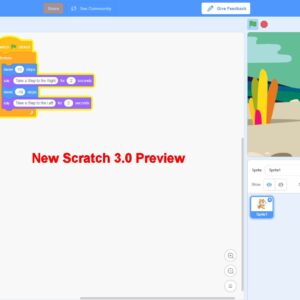
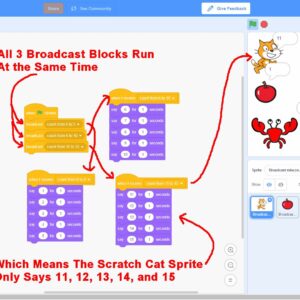
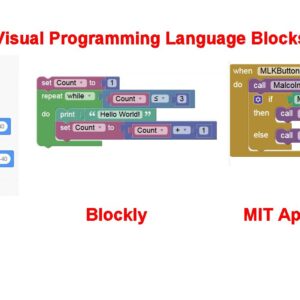
When to Teach Coding in Primary Schools #Coding #Teachers...
Relative Frequencies of Letters in the English Language Graph #Python #Language #Teachers...
Raspberry Pi vs Arduino Uno #RaspberryPi #Arduino...
Arduino Uno vs Arduino Mega #Arduino #Hackerspaces...
Arduino IDE Software Components #Arduino #Software...
Arduino UNO Attached to a PC via USB Cable #Arduino...